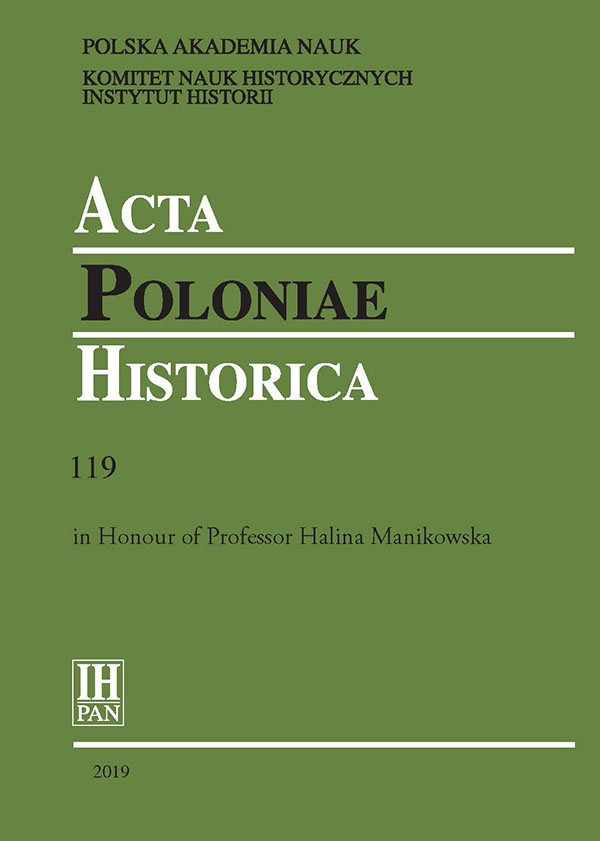On the Problem of the Size of Trading Complexes in Medieval Towns and Cities of Central Europe
DOI:
https://doi.org/10.12775/APH.2019.119.06Keywords
city, town, cloth halls, stalls, butcher stalls, thirteenth–fifteenth centuriesAbstract
Wherever the town owners did not literally grant the settlement official, i.e. founder (Pol. zasadźca), or the commune itself, full rights to privileged trading facilities, they reserved the competences to shape the size, location and appearance of their complexes. Decisions in this regard formed an element of economic and fiscal policy towards the town, albeit not always – they could also be part of a planned vision of the town or city (the way space was divided could decide about the town’s economy), or flexibly adapted to needs formulated by the interested groups of townspeople. The size of cloth halls and rich stall complexes was supposed to reflect the economic potential of the town, and the size of the complexes of butcher stalls and chambers – the consumption needs of the population. However, in the latter case there were significant deviations, which manifested themselves in strict adherence to artificially established models and traditions rather than in flexibility. The data concerning the number of trade stalls, although still undervalued in historiography, are an important source for research into the history of individual towns and cities, even though they may be less useful for comparative approaches.References
Czerner Rafał, Zabudowy rynków. Średniowieczne bloki śródrynkowe wybranych dużych miast Śląska (Wrocław, 2002).
Goliński Mateusz, ‘Die Anfänge der Kaufhäuser und Reichkrame in den schlesischen Städten’, Zeitschrift für Ostforschung, xlii, 1 (1993), 1–20.
Rabęcka-Brykczyńska Irena, ‘Jatki rzeźnicze w Polsce w XIII–XIV wieku’, in eadem and Tadeusz Sobczak, ‘Z problematyki badań nad produkcją i konsumpcją żywności w Polsce’, Studia i Materiały z Historii Kultury Materialnej, lvii (1984), 7–130.
Downloads
Published
2019-09-01
How to Cite
1.
GOLIŃSKI, Mateusz. On the Problem of the Size of Trading Complexes in Medieval Towns and Cities of Central Europe. Acta Poloniae Historica. Online. 1 September 2019. Vol. 119, pp. 101-117. [Accessed 18 February 2026]. DOI 10.12775/APH.2019.119.06.
Issue
Section
STUDIES
License
Title, logo and layout of journal are reserved trademarks of APH.Stats
Number of views and downloads: 315
Number of citations: 1



